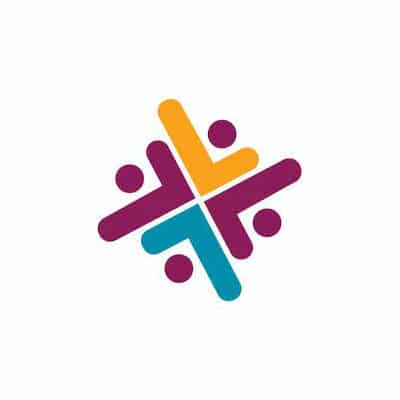Smart giving
Telligen’s foundation a big new player in health improvement funding

JOE GARDYASZ Feb 19, 2016 | 12:00 pm
4 min read time
864 wordsArts and Culture, Business Record InsiderMore than $1 million annually, in perpetuity.
That’s the financial commitment that Telligen Community Initiative has made — and has already begun delivering — to health-related charitable organizations in Iowa and other states in which its sister organization, Telligen Inc., provides services.
The charitable foundation was endowed two years ago by the nonprofit health quality organization as part of its new ownership model as an employee-owned company. Under that model, employees of the West Des Moines-based nonprofit are gradually building their ownership stake in the company by paying off the company’s debt in the nonprofit foundation.
That structure has given Telligen Community Initiative (TCI) a fund of approximately $38 million in assets from which to provide grants, said Matt McGarvey, whom TCI hired away from the Wellmark Foundation in April 2014 to lead the foundation.
“But truly, that ($38 million) is just a number,” McGarvey said. “It doesn’t mean a lot until it’s attached to organizations that are ready to do good work in a community.”
In 2014, its first year of operation, the newly endowed foundation provided more than $1.1 million in grants, and in this past year, it will have granted more than $1.5 million to 45 charitable organizations in Iowa, Illinois and Oklahoma.
The new source of funding means that the foundation, which prior to 2014 had been plodding along at about $150,000 in grants annually, will now fund grants of up to $50,000 to back higher-impact projects, said Jeff Chungath, CEO of Telligen Inc.
“It’s been incredibly rewarding for us,” Chungath said. “The aspiration was that we would be able to give over $1 million a year. With Matt and his work, we’ve definitely realized that.
The need is kind of humbling, but it’s been great to be able to give money to some of those grantees.”
The foundation has three areas of focus for project funding: health care workforce development, health care for the underserved and health innovation.
“In the health care workforce development area, there really aren’t many other philanthropic organizations focused on that need,” McGarvey said. “So we’re really helping to build the next generation of providers.”
Employee participation from Telligen employees is an integral part of the process, he said.
“That’s been an exciting part for us,” McGarvey said. “There is such great experience (in the company) from a project management and impact and evaluation standpoint. I’ve really been able to use employees from all over the country to be part of the process as voluntary grant reviewers. This most recent cycle, I had 40 employees from across four states who volunteered their time. It’s a neat thing to be able to engage the employee base from a corporate social responsibility standpoint.”
Telligen employees even receive wellness points for their volunteer participation in evaluating grants, since volunteering is considered a wellness activity by the company.
Another unique aspect of the foundation’s work, Chungath noted, is the extent to which that expertise is applied to evaluate projects both before and after the award.
“We’ve been a company that’s always been about using data and science to do interventions,” he said. “What I like about our foundation is that we’ve taken the same approach where we’ve looked over the data and the needs in a more systematic way as we go about soliciting grants.
And the other thing we do is evaluation and measurement (of grant results). If we give money, we want to know that there (is an impact).”
Looking ahead, McGarvey said he believes the foundation is just scratching the surface of what it can accomplish in its key focus areas.
“Obviously, there are opportunities to look at additional geographic areas where Telligen is doing work,” he said. “We’re also very open to what we can do from a collective impact standpoint (with other health-oriented foundations).”
Some of Telligen’s funded local projects include:
Iowa Prescription Drug Corp. – Urbandale – $50,000
Iowa Prescription Drug Corp. proposes to establish a statewide nonprofit “safety net” pharmacy to serve the unique health and pharmaceutical needs of underserved patients in Iowa. The pharmacy will serve this critical need along with other “safety net” health providers, with a focus on federally qualified health centers in the state, free clinics and independent community pharmacies.
Friends of Iowa CASA and ICFCRB, Des Moines – $50,000
Friends of Iowa CASA (Court Appointed Special Advocates) and ICFCRB (Iowa Citizen Foster Care Review Boards) will hire a full-time executive director to continue the momentum in raising awareness of and financial support for Iowa’s abused and neglected children.
Courage League Sports, Urbandale – $10,000
Courage League Sports provides adaptive sports, recreation and leisure opportunities for individuals with disabilities. The funding will support the hosting of interns within the recreational therapist field to provide students an opportunity to explore a nontraditional setting.
Telligen Community Initiative’s board:
Lanny Ward, district director of care initiatives (board chair)
Dr. Gerard Clancy, vice president for health affairs and dean of the College of Health Sciences, University of Tulsa
Peg Mason, vice president of health management, Telligen Inc.
Dr. Victoria Sharp, chief of staff, University of Iowa Health Care
Dr. David Thomas, family physician and geriatrician in Marshalltown
Dr. Michael Zia, vice president of medical affairs and quality, Decatur Memorial Hospital, Decatur, Ill.









